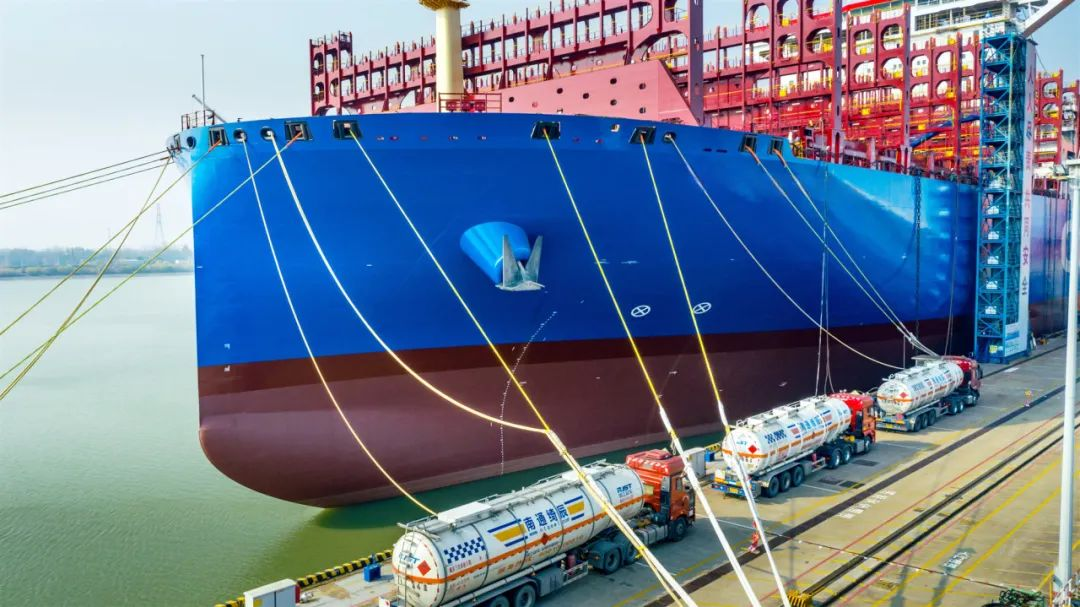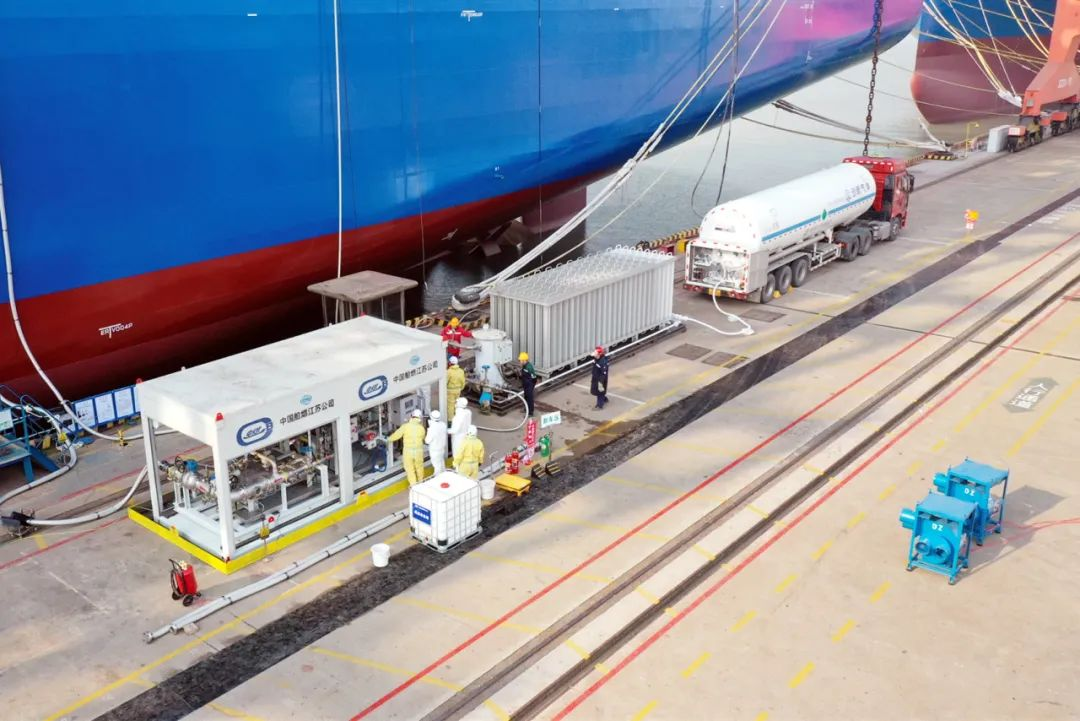On December 26, the first 16,000TEU methanol dual-fuel container ship built by COSCO Shipping Heavy Industry (Yangzhou) successfully bunkered with 150 tons of methanol fuel. This is an important milestone in the first time in China to bunker a large dual-fuel container ship with methanol. The bunkering operation was carried out by China Marine Bunker(PetroChina)Co.Ltd. (CHIMBUSCO)’s Jiangsu Company, which demonstrated the substantial progress made by COSCO Shipping Group in the new energy industry chain of methanol.

The 16,000 TEU methanol dual-fuel powered container ship is the first methanol dual-fuel powered large container ship in China, with an overall length of 367 meters, a beam of 51 meters, a maximum loading capacity of 16,136 TEU. And its Energy Efficiency Design Index (EEDI) meets the third phase of the International Maritime Organization (IMO) standards, which reduces the carbon emissions by about 8.9%, and is 52.8% lower than the baseline.
This series of 16000TEU methanol dual-fuel container ships is an important part of COSCO SHIPPING Group’s efforts to meet the needs of green shipping corridors and build a green methanol industry chain.
The construction of this ship not only represents the technical strength of COSCO Shipping Heavy Industry (Yangzhou) in the field of new energy ships, but is also a key project for COSCO SHIPPING Group to develop green and low-carbon strategic emerging industries and actively promote low-carbon and zero-carbon fuel ships.

In this bunkering operation, CHIMBUSCO’s Jiangsu Company overcame the difficulties of long bunkering distance and high bunkering lift to provide the whole process of cabin inerting and methanol fuel bunkering service for COSCO Shipping Heavy Industry (Yangzhou).
Meanwhile, in order to ensure the smooth operation of this bunkering operation, CHIMBUSCO’s Jiangsu Company and COSCO Shipping Heavy Industry (Yangzhou) cooperated in depth to prepare the first domestic methanol bunkering design plan for large container ships in the form of terminal tanker and obtained the certificate of approval in principle issued by China Classification Society (CCS).


